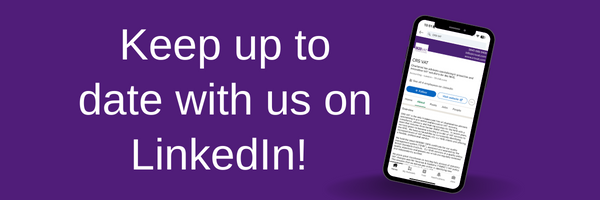HMRC has introduced new penalties for late submission of VAT returns and late payment of VAT for periods starting 1 January 2023. For NHS organisations which submit monthly VAT returns, the new penalty regime applies from the January 2023 VAT return due on or before 7th March 2023.
The new late return penalty
The new late return penalty works on a ‘points-based’ system. For each VAT return you submit late, you’ll receive a penalty point until you reach the penalty point threshold. There are various point thresholds and period conditions which apply depending upon your accounting period, so we have outlined below only those which apply to NHS organisations which submit monthly VAT returns. The late return penalty will apply even on net repayment returns, where money is due from HMRC.
The penalty point threshold is 5 for NHS organisations.
If you reach the 5-point threshold, you’ll receive a £200 penalty. You’ll also receive a further £200 penalty for each subsequent late return while you’re at the threshold. If you have not reached the threshold, each individual penalty point will expire automatically on the last day of the 24th month after the date on which the late return was due. However, once you’ve reached the threshold, there are conditions which need to be met to remove the points to avoid further £200 penalties.
These are:
Condition A – complete a period of compliance For NHS organisations, you’ll need to submit 6 monthly VAT returns on time starting from the monthly period after the late return was due.
Condition B – Submit all outstanding returns You will also need to submit any outstanding returns for the previous 24 months. The 24 months will include the period of compliance.
Penalty points will be reset to zero on the first day where both condition A and condition B are met. You can check penalty points in your online account, and it will also be possible to appeal a point or financial penalty.
The new late payment penalties
The new late payment penalties apply to any payments of VAT not paid in full by the relevant due date and will be charged at different rates based on when payment is received. This means the penalties increase proportionate to the length of time a payment is outstanding – the sooner you pay, the lower the penalty.
Late payment penalties apply to VAT due:
- On VAT returns
- Following an amendment to a return or correction
- From a VAT assessment issued by HMRC when you did not submit your return
- From a VAT assessment issued by HMRC for another reason
You’ll get a first late payment penalty if your payment is 16 or more days overdue. When your payment is 31 or more days overdue, your first late payment penalty increases, and you get a second late payment penalty.
The escalation of penalties can be summarised as follows:
- Payment up to 15 days overdue – none
- Payment between 16 and 30 days overdue – 2% of the VAT you owe at day 15
- Payment 31 days or more overdue – a further 2% of what was outstanding at day 15, plus 2% of what is still outstanding at day 30, plus a daily rate of 4% per year on the outstanding balance, charged every day from day 31 until the outstanding balance is paid in full
Late payment interest
As well as the potential late payment penalties, late payment interest will also be charged from the first day that the payment is overdue until the day it’s paid in full, calculated at the Bank of England base rate plus 2.5%.
This includes amounts overdue on:
- VAT returns
- Amendments or corrections of a return
- A VAT assessment made by HMRC
- A missed VAT payment on account
Interest will also be charged on the value of penalties if these are overdue including late submission penalties and late payment penalties.
What this means to the NHS
The late return penalty will apply even on net repayment returns, where money is due from HMRC.
Given that NHS organisations submit monthly VAT returns, usually with COS VAT repayments, (as opposed to quarterly returns for most VAT payment businesses), NHS organisations are arguably more exposed to the new penalty regime than most commercial organisations.
If an NHS organisation owes VAT to HMRC on either a return (such as an end-of-year partial exemption adjustment) or on an assessment of any kind, it is crucial that the VAT is paid on time in order to avoid a penalty and interest charge.
Please contact us at the earliest opportunity if you wish to discuss how these changes may affect your NHS organisation.
